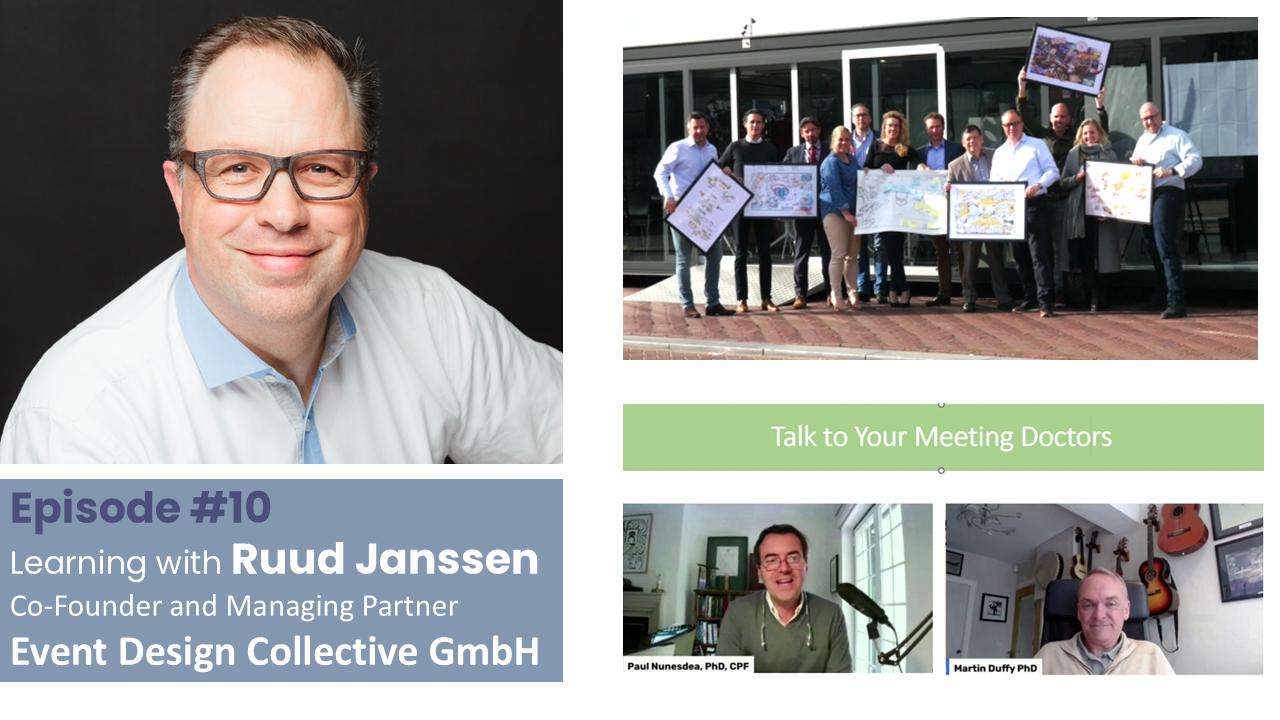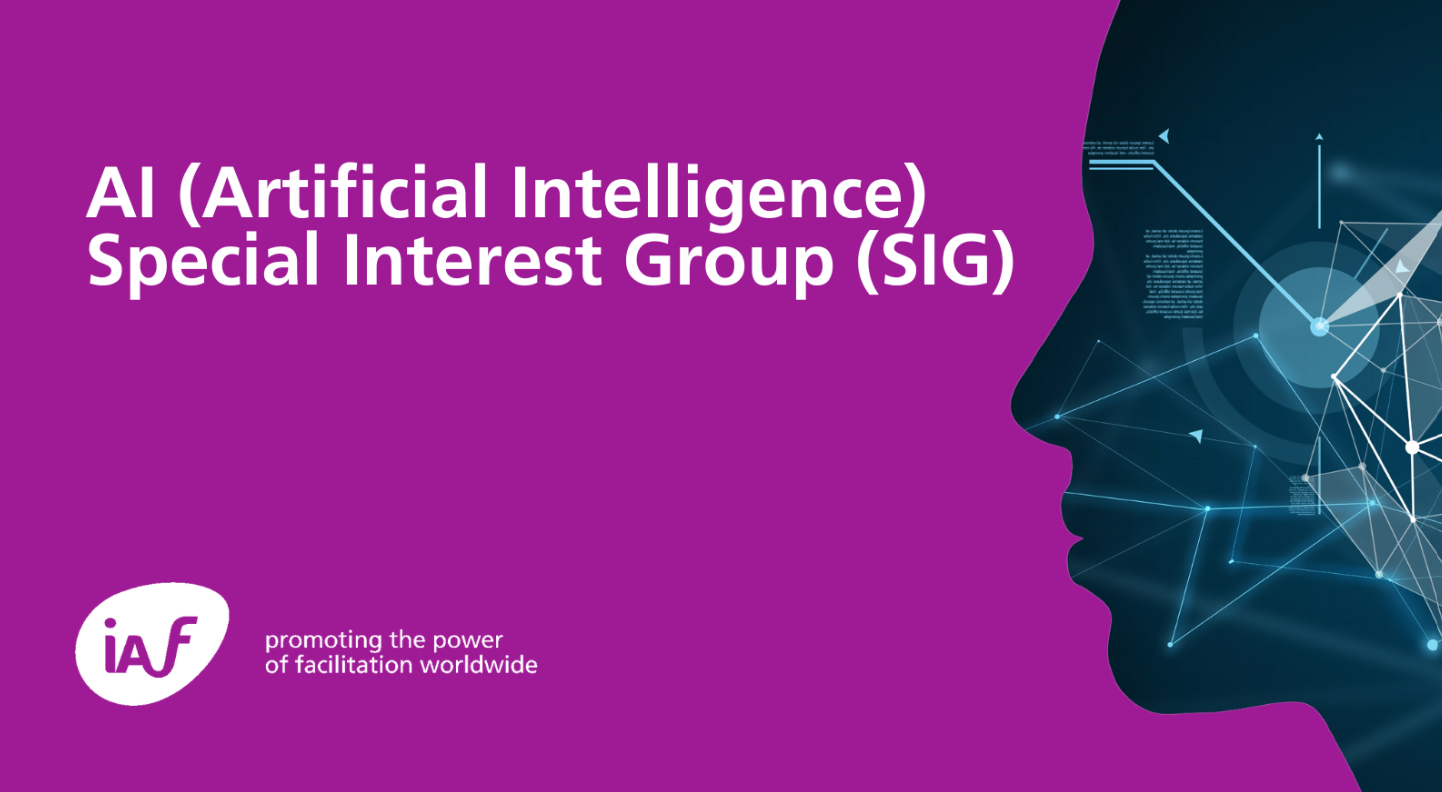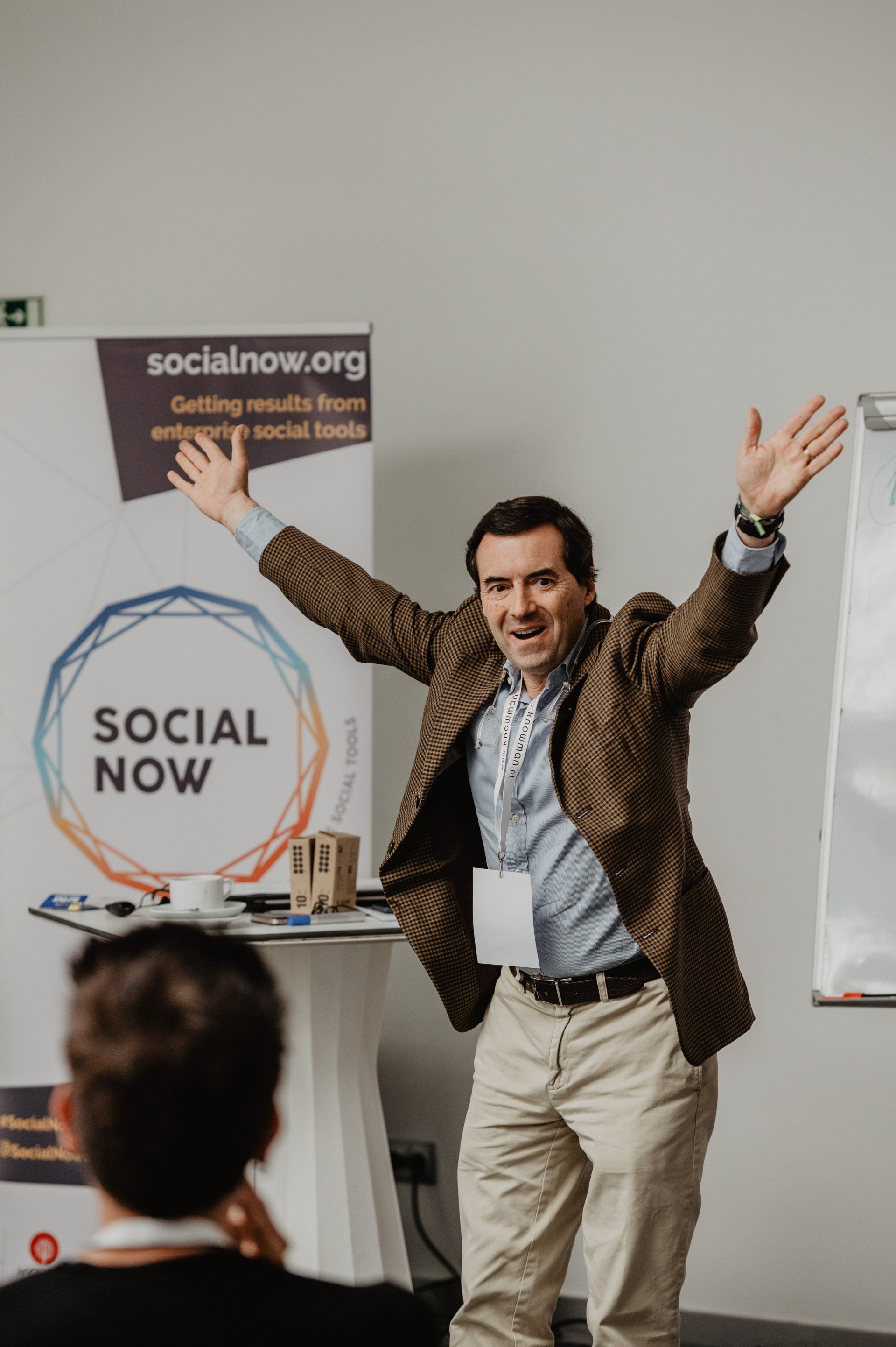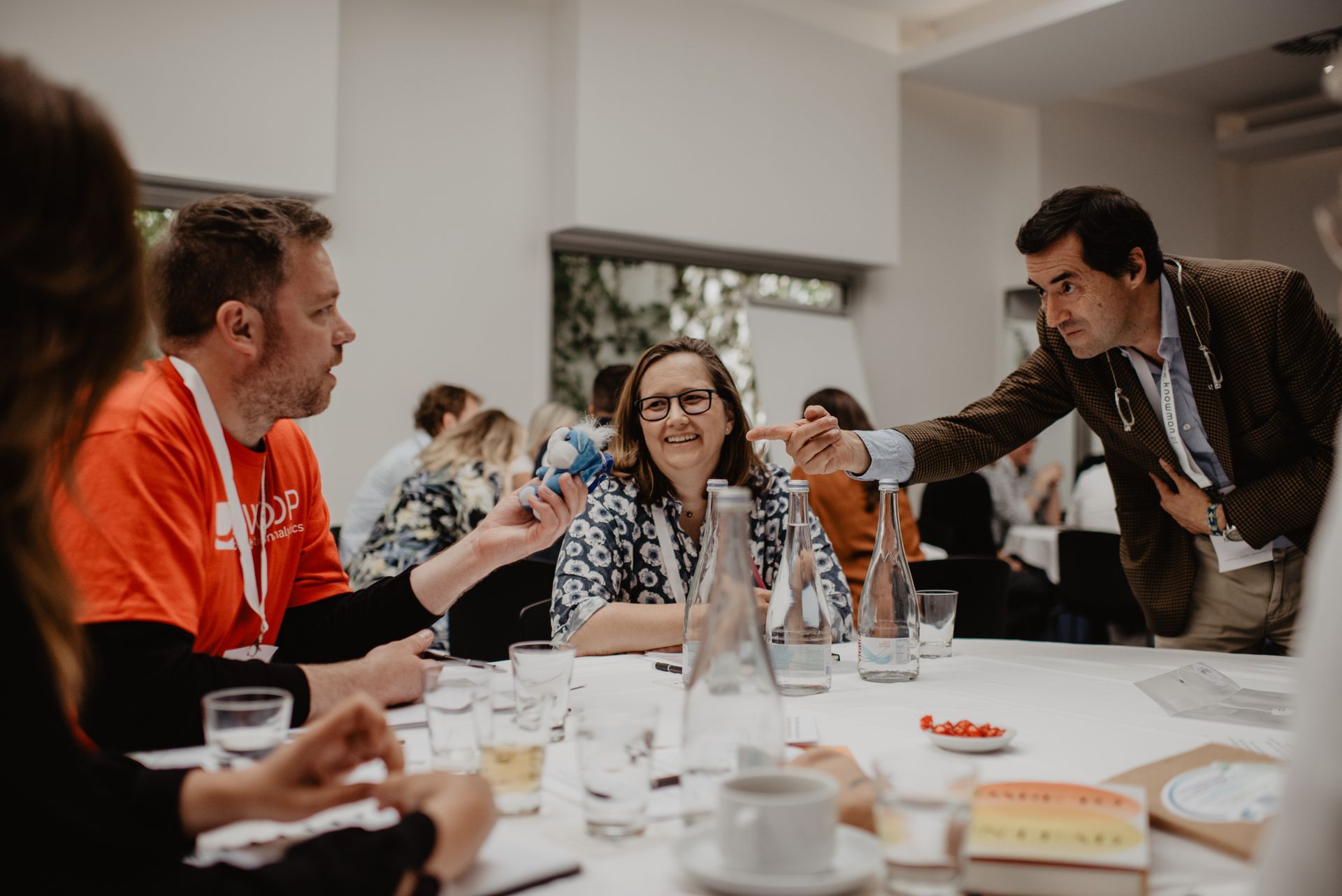
Personal Reflection Notes: Unbecoming Beyond AI
Unlearning and Unbecoming: Human Growth Beyond the Influence of AI
This reflection stems from my participation in the LinkedIn Live audio event, LinkedIn Mastery - Monday Mindset. The discussion around personal growth, mindset, and the challenges of adapting to change sparked my deeper contemplation on the interconnected processes of unbecoming and unlearning. Towards the end, guest speaker Joy Case challenged us to use AI as a sandbox and try something different. While my rational mind took over, steering me away from poetry, it led me to craft a dialogue that prompted this reflection. It made me question how we often contextualize transformation through AI, even though these processes are fundamentally human and should happen naturally, regardless of external triggers.

As I reflect on the concept of unbecoming, I realize that while AI often takes center stage in discussions about transformation and growth, the truth is that unbecoming is a deeply human experience that transcends the technological context. We might be over-relying on AI as a framework to prompt self-reflection when, in fact, the need to unbecome—to shed old identities, assumptions, and roles—should be happening naturally, regardless of the presence or impact of AI.
Unbecoming, at its core, is about embracing change and consciously evolving in response to life’s natural rhythms and challenges. It involves letting go of outdated beliefs and adapting to new experiences, something humans have been doing for centuries, through the ebb and flow of life. We don’t need AI to catalyze this process. Life itself, with its richness and unpredictability, is enough to constantly push us to unlearn, evolve, and redefine who we are.
The Role of AI: Catalyst or Distraction?
While AI serves as an accelerant for change in today’s world—impacting how we work, live, and think—there's a risk in framing it as the primary driver for unbecoming. By doing so, we may forget that unbecoming is not dependent on technology. It is a natural process driven by internal reflection, personal growth, and the need for individuals to align with their authentic selves.
Unbecoming should occur in response to personal awareness, shifts in life circumstances, relationships, or even cultural changes. These are all contexts where we must regularly shed our previous identities and embrace something new. AI might make this process more visible or urgent in certain areas of life, but it's important not to overly contextualize unbecoming within the technological realm.
Beyond AI: The Timeless Nature of Transformation
When I think about the essence of unbecoming, it becomes clear that humans have always evolved—whether through personal introspection, cultural shifts, or transformative life events. The challenge is to not let AI dominate the narrative of transformation. We are capable of unbecoming through reflection on our internal experiences, without the pressure of external, tech-driven forces.
In my own life, this means recognizing the triggers for unbecoming that come from within: the life lessons I’ve learned, the people I’ve met, and the values I hold dear. These are the forces that truly drive my unbecoming. The process is one of letting go of outdated roles, mindsets, and beliefs that no longer serve me. It’s a lifelong practice of evolving into the person I wish to be, rather than what external contexts (like AI) dictate.

Unlearning as the Gateway to Unbecoming
Unlearning is essential to the process of unbecoming. In fact, the two are inseparable. Where unbecoming is about shedding outdated identities, unlearning is the active process of letting go of the knowledge, beliefs, and patterns that no longer serve me. The two work in tandem to create space for new growth and a deeper understanding of myself and the world around me.
To unlearn means to consciously reject the conditioning, habits, and social constructs that may have once seemed natural or right but now hinder my progress. It’s about recognizing the filters through which I’ve been seeing the world—often shaped by culture, upbringing, or past experiences—and questioning their validity. By doing so, I can begin the unbecoming process, peeling away the layers of assumptions and mental frameworks that have shaped my identity for so long.

Unlearning as a Lifelong Practice
Unlearning is not something that happens in one moment of epiphany. It is an ongoing, sometimes difficult practice. There are patterns I’ve internalized over the years—ways of thinking, reacting, and being—that may take time to consciously unravel. But each moment of unlearning is an opportunity for growth. It allows me to question my assumptions and ask, “Is this belief still true for me? Does it still serve who I want to become?”
Unbecoming is the natural outcome of this unlearning process. By letting go of the mental frameworks I’ve outgrown, I create space for a more authentic version of myself to emerge. It’s a liberating practice, one that fosters curiosity and openness to life’s infinite possibilities.
Just as with unbecoming, unlearning is a deeply human process that doesn’t rely on AI. Life itself provides countless opportunities for unlearning:
- New experiences that challenge my existing beliefs.
- Failure and moments of discomfort that prompt me to reconsider my approach.
- Personal relationships that show me different perspectives and teach me empathy. All of these experiences require unlearning in some form, as I move away from fixed ways of thinking and allow room for growth.
AI, while a powerful tool, should not overshadow these more natural sources of learning and transformation. It might highlight the need for adaptability in certain contexts, but true unlearning happens in the day-to-day—through interactions, reflections, and the simple act of being open to change.
Key Takeaway: Unbecoming and Unlearning as Interwoven Processes
Ultimately, unbecoming and unlearning are deeply connected. One cannot happen without the other. As I unlearn the beliefs, roles, and behaviors that have defined my past self, I also unbecome that person, opening up space for a new identity and new perspectives.
The key takeaway for me is that while AI may offer us tools to rethink and reshape certain aspects of our lives, the journey of unbecoming and unlearning is inherently human. It is a process that happens naturally as part of life’s evolution—through challenges, new perspectives, and moments of self-reflection. By embracing this, I allow myself the freedom to continuously redefine who I am, and ultimately, who I can become.

About the Author
Paul Nunesdea is the English pen name of Paulo Nunes de Abreu, Facilitator, Master of Ceremonies, Author, and Publisher of the
Architecting Collaboration book series. He is an IAF Certified Facilitator™ who designs and hosts events for clients ranging from large corporations to governmental organizations.
As the founder of
col.lab | collaboration laboratory, Paul leads initiatives like My Meeting Support and Debate Exímio Lda, hosting innovative events such as the Health Data Forum and the Health Regions Summit, driving collaboration in healthcare and beyond.

Follow Us
"Be brave enough to start conversations that matter and shift the direction of change for the better."
col.lab | collaboration laboratory is a spin-off from the book series " Architecting Collaboration " and our privacy policy can be consulted here
My Meeting Support is an event services brand by col.lab | collaboration laboratory
















